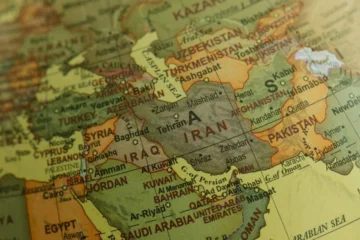In 2025, Vietnam has jumped into the global competition for talent and investment with a shiny new offering: the 10-year Golden Visa. This move isn’t just about catching up with regional rivals like Thailand or Malaysia—it’s about carving out a serious place on the global map for investors, digital nomads, skilled professionals, and even retirees. With Southeast Asia booming in popularity among remote workers and entrepreneurs, Vietnam’s long-term visa is a signal that it’s ready to play the long game.
Key Takeaways
What Is Vietnam’s Golden Visa and Why Is It Making Headlines?
So why is this visa program making waves? Because it offers what many applicants crave: flexibility, simplicity, and serious perks. Whether you’re tired of short-term visa runs or looking to park your investment in a dynamic emerging market, Vietnam is now officially open for long-term business.
Who Can Apply for the 10-Year Residency Visa?
Vietnam’s Golden Visa is inclusive by design, catering to a wide range of applicants. First, there’s the Investor Visa, open to individuals who pour money into Vietnamese companies or government-sanctioned projects. It’s tailored to entrepreneurs and investors looking to tie their fortunes to Vietnam’s fast-growing economy.
Then there’s the Talent Visa. This one’s aimed at skilled professionals in sectors Vietnam wants to grow—think tech, education, healthcare, and scientific research. Even if you don’t own a company, if you’ve got the skills, Vietnam wants you on board.
Lastly, the Long-Term Visitor Visa is a magnet for digital nomads, freelancers, and retirees who want to live in Vietnam without a traditional job or investment. Whether you’re working remotely from Da Nang or enjoying a slower life in Hoi An, this visa offers up to a decade of peace of mind.
How Much Do You Need to Invest or Earn to Qualify?
Each visa category comes with its own financial bar. For the Investor Visa, expect to show a significant investment—Vietnamese authorities are likely to set a minimum threshold, typically in the range of several hundred thousand U.S. dollars, depending on the type of project or business sector.
The Talent Visa doesn’t require investment but does call for proof of qualifications, professional achievements, and a verified job offer or contribution plan in Vietnam. If you’re coming as a researcher, professor, or tech expert, you’ll need documentation to back it up.
For digital nomads and retirees on the Long-Term Visitor Visa, financial self-sufficiency is key. You’ll need to demonstrate a stable income or savings sufficient to support yourself during your stay. The exact figures haven’t been published yet, but early reports suggest an income of at least $2,000–$3,000 per month should suffice.
Also Read: Are You Still Eligible for a UK Visa After the May 2025 Changes?
What Are the Main Benefits of This Long-Term Visa?
The headline perk is, of course, duration. A 10-year visa means no more annual renewals or border runs. The visa allows multiple entries, so you can travel freely without the headache of reapplying every time you return.
You can also include family members, which makes it appealing for those relocating with spouses or children. Some pathways may even lead to permanent residency after a few years, particularly for investors and long-term contributors to the Vietnamese economy.
Additionally, Golden Visa holders may enjoy access to local services, streamlined bureaucracy, and potential tax incentives, though the fine print on those is still evolving.
How Does the Application Process Work?
Vietnam has modernized its approach to visa applications. Most Golden Visa applications can now be submitted online through the Ministry of Public Security’s digital portal or via Vietnamese consulates and embassies abroad.
Applicants must prepare several standard documents: a valid passport, proof of income or investment, a clean criminal background check, and health insurance. There’s no need for an in-person embassy visit in many cases, and biometric data can often be submitted upon arrival or during the visa pickup process.
The process, while streamlined, still requires precision. Having your documents professionally translated into Vietnamese and thoroughly reviewed can go a long way toward a smooth application.
What Are the Living Conditions Like for Expats in Vietnam?
Expats are increasingly drawn to Vietnam for its mix of affordability, cultural richness, and vibrant lifestyle. Cities like Ho Chi Minh and Hanoi offer a mix of modern amenities, international schools, and a strong expat support network.
Monthly living costs can be surprisingly low. A comfortable lifestyle in a major city might cost $1,500 to $2,000 per month, while quieter towns can offer an even cheaper standard of living. Healthcare quality has improved significantly, with both public and private options available, and many hospitals cater to English-speaking patients.
The food? World-class. The weather? Tropical and inviting (albeit humid). And the community? A lively mix of entrepreneurs, retirees, freelancers, and digital nomads.
Is the Golden Visa the Best Route for You in Southeast Asia?
Vietnam’s Golden Visa is an ambitious play to attract global talent and capital. But how does it stack up against others in the region?
Thailand’s LTR visa offers similar 10-year terms but comes with higher financial barriers. Malaysia’s MM2H program is well-established but has seen fluctuating requirements. Indonesia is teasing its own Golden Visa, but details are still fuzzy.
For many, Vietnam offers a sweet spot: a booming economy, a relatively low cost of living, and a government keen on welcoming foreign talent. If you’re looking for a base in Southeast Asia that balances lifestyle, opportunity, and long-term security, this might just be your golden ticket.
Before applying, be sure to consult official Vietnamese immigration resources or an immigration consultant to get the most up-to-date requirements and ensure your application is airtight.





